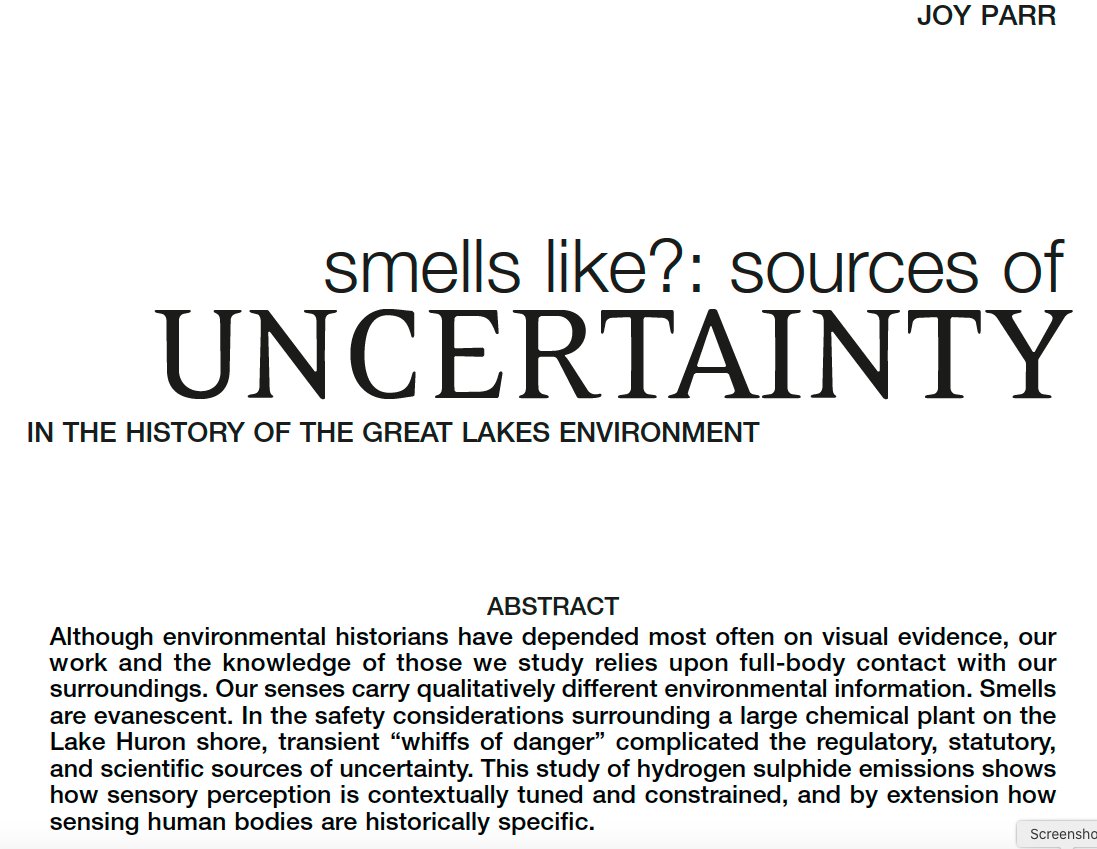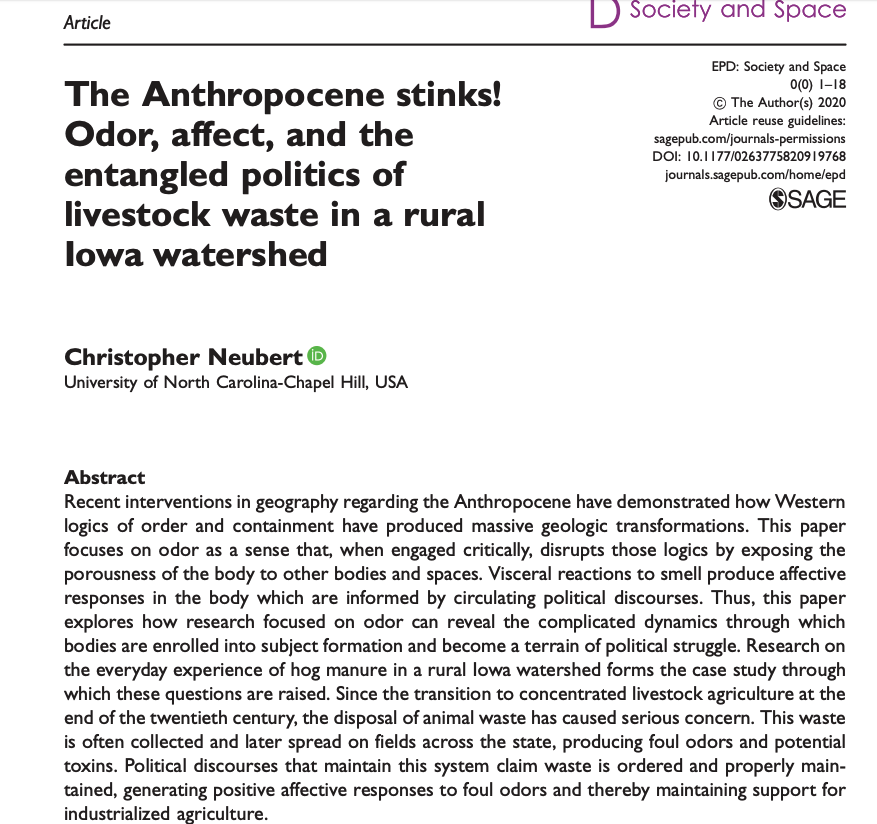The history of (Western) smells is convinced that modernity is "deodorized": nasty odours are distanced and segregated off. But surely this is predicated on environmental injustice? The "olfactory revolution" coincided with the growth of stinky industries https://www.lrb.co.uk/the-paper/v42/n14/keith-thomas/noisomeness
In Louisiana's Cancer Alley, for example, poor African Americans often complain of the chemical stench: an acrid, metallic odour with a whiff of "burnt garlic" that seeps into their houses. Modernity isn't deodorized—it exposes the marginalized to its very own "toxic bouquet"
AFAIK few environmental historians have tackled smell. But, as Parr (2006) hints, smell highlights the permeability of the body to pollution, and raises important questions about alternative and more democratic forms of environmental knowledge
https://doi.org/10.1093/envhis/11.2.269
https://doi.org/10.1093/envhis/11.2.269
"The lower classes smell," George Orwell notoriously wrote. That's true in a whole other way. In Philadelphia's Grays Ferry neighbourhood, where a refinery *exploded* last year, citizens use odours to challenge the oil firm's claims that the air is safe http://www.schuylkillcorps.org/items/show/309
Historians of smells often seem to say "lol silly early moderns believed smells could actually hurt you." But it actually isn't nuts for people inhaling fumes to link acrid "funky smells"—actual miasmas!—like those in Grays Ferry to lifelong health impacts
http://schuylkillcorps.org/exhibits/show/grays-ferry-oral-histories/present-day-grays-ferry
http://schuylkillcorps.org/exhibits/show/grays-ferry-oral-histories/present-day-grays-ferry
There's much more to be said about smell + the formation of political subjectivities. Sometimes stinks are rebranded to defend the status quo, as new paper  says (h/t @GeogSara). But I have a hunch that smell also plays a big role in galvanizing environmental justice movements
says (h/t @GeogSara). But I have a hunch that smell also plays a big role in galvanizing environmental justice movements
 says (h/t @GeogSara). But I have a hunch that smell also plays a big role in galvanizing environmental justice movements
says (h/t @GeogSara). But I have a hunch that smell also plays a big role in galvanizing environmental justice movements

 Read on Twitter
Read on Twitter





